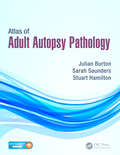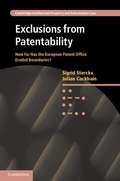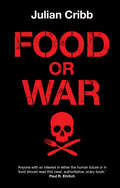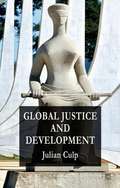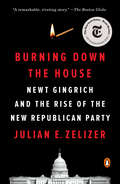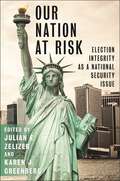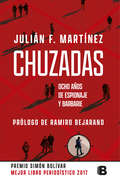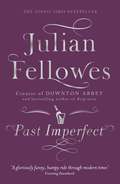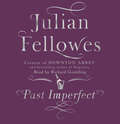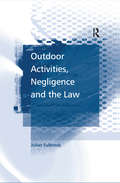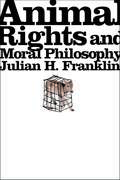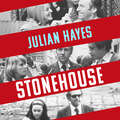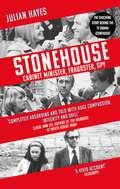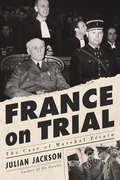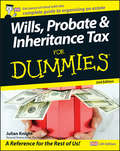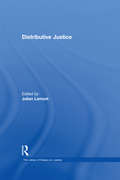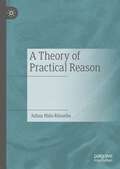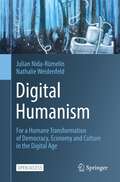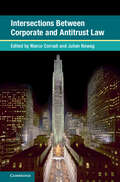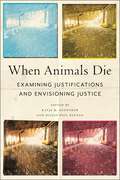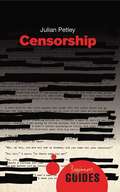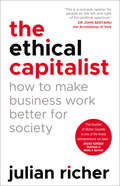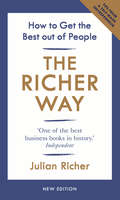- Table View
- List View
Atlas of Adult Autopsy Pathology
by Stuart Hamilton Julian Burton Sarah SaundersThe Atlas of Adult Autopsy Pathology is a full-color atlas for those performing, or learning to perform, adult autopsies. It is arranged by organ systems and also includes chapters on external examination findings, the effect of decomposition, and histopathological findings, as well as procedures and devices one may encounter during autopsy.The boo
Exclusions from Patentability
by Sigrid Sterckx Julian CockbainExclusions from Patentability reviews the history of the adoption of exclusions from patentability under the European Patent Convention since its first conception in 1949 through to its most recent revision. The analysis shows how other intellectual property treaties, such as UPOV, the Strasbourg Patent Convention, PCT, the EU Biotech Directive and TRIPS have affected the framing of the exclusions. Particular attention is given to those exclusions considered the most contentious (computer programmes, discoveries, medical treatments, life forms and agriculture) and those decisions which have been most influential in shaping the approaches by which the exclusions have been interpreted. The 'morality' exclusion and the interpretation of the exclusions are discussed critically and suggestions for coherent interpretation are made.
Food or War
by Julian CribbOurs is the Age of Food. Food is a central obsession in all cultures, nations, the media, and society. Our future supply of food is filled with risk, and history tells us that lack of food leads to war. But it also presents us with spectacular opportunities for fresh human creativity and technological prowess. Julian Cribb describes a new food system capable of meeting our global needs on this hot and overcrowded planet. This book is for anyone concerned about the health, safety, affordability, diversity, and sustainability of their food - and the peace of our planet. It is not just timely - its message is of the greatest urgency. Audiences include consumers, 'foodies', policymakers, researchers, cooks, chefs and farmers. Indeed, anyone who cares about their food, where it comes from and what it means for them, their children and grandchildren.
Global Justice And Development
by Julian CulpDefending a procedural conception of global justice that calls for the establishment of reasonably democratic arrangements within and beyond the state, this book argues for a justice-based understanding of social development and justifies why a democracy-promoting international development practice is a requirement of global justice.
Burning Down the House: Newt Gingrich, the Fall of a Speaker, and the Rise of the New Republican Party
by Julian E. ZelizerThe story of how Newt Gingrich and his allies tainted American politics, launching an enduring era of brutal partisan warfare When Donald Trump was elected president in 2016, President Obama observed that Trump &“is not an outlier; he is a culmination, a logical conclusion of the rhetoric and tactics of the Republican Party.&” In Burning Down the House, historian Julian Zelizer pinpoints the moment when our country was set on a path toward an era of bitterly partisan and ruthless politics, an era that was ignited by Newt Gingrich and his allies. In 1989, Gingrich brought down Democratic Speaker of the House Jim Wright and catapulted himself into the national spotlight. Perhaps more than any other politician, Gingrich introduced the rhetoric and tactics that have shaped Congress and the Republican Party for the last three decades. Elected to Congress in 1978, Gingrich quickly became one of the most powerful figures in America not through innovative ideas or charisma, but through a calculated campaign of attacks against political opponents, casting himself as a savior in a fight of good versus evil. Taking office in the post-Watergate era, he weaponized the good government reforms newly introduced to fight corruption, wielding the rules in ways that shocked the legislators who had created them. His crusade against Democrats culminated in the plot to destroy the political career of Speaker Wright. While some of Gingrich&’s fellow Republicans were disturbed by the viciousness of his attacks, party leaders enjoyed his successes so much that they did little collectively to stand in his way. Democrats, for their part, were alarmed, but did not want to sink to his level and took no effective actions to stop him. It didn&’t seem to matter that Gingrich&’s moral conservatism was hypocritical or that his methods were brazen, his accusations of corruption permanently tarnished his opponents. This brand of warfare worked, not as a strategy for governance but as a path to power, and what Gingrich planted, his fellow Republicans reaped. He led them to their first majority in Congress in decades, and his legacy extends far beyond his tenure in office. From the Contract with America to the rise of the Tea Party and the Trump presidential campaign, his fingerprints can be seen throughout some of the most divisive episodes in contemporary American politics. Burning Down the House presents the alarming narrative of how Gingrich and his allies created a new normal in Washington.
Our Nation at Risk: Election Integrity as a National Security Issue
by Julian E. Zelizer and Karen J. GreenbergThe nation's top political scientists, historians, and legal scholars propose solutions for democracy's futureIn recent years, the sight of gun-wielding citizens patrolling ballot boxes and voting sites has become increasingly familiar. Major news corporations parroting false claims of election fraud, ballot stuffing, and faulty voting systems is the new normal. In an era of global anti-democratic movements, the sanctity of democratic electoral processes has become a major national security concern, and the need to protect elections from foreign interference, disinformation, voter intimidation, and the danger of election results being overturned, are now front and center. How did we get here? And more importantly, how will this affect the future of democracy?Award-winning authors Julian E. Zelizer and Karen J. Greenberg bring together the nation’s top political scientists, historians, and legal scholars to examine how the lack of stability and integrity of the electoral process has become a threat to national security. Through historical and social scientific analysis, contributors outline how these problems have emerged and propose concrete solutions to move us into a period of greater stability. At once urgent and comprehensive, Our Nation at Risk is the preeminent book on election security and a must read for anyone invested in the fight for democracy.
Chuzadas: Ocho años de espionaje y barbarie
by Julian F. MartínezLa historia detrás de las chuzadas del DAS. Aunque el tema es parcialmente conocido, el reportero Julián F. Martínez en esta impresionante investigación, logra poner en contexto -además de adicionar datos aún desconocidos y una rigurosa documentación-, uno de los periodos más oscuros de la historia política del país. Más allá de lo que se llamaron las chuzaDas, este libro aborda otros hechos graves como espionaje, amenazas, persecución y asesinatos. «ChuzaDAS es un documento que hace parte de la memoria histórica de uno de los peores episodios de los servicios de inteligencia de Colombia. Es un texto de consulta en donde cada una de las aseveraciones está comprobada con fechas, documentos de soporte y datos de contexto. Este libro es uno de los mejores trabajos de Julián F. Martínez, ya que gracias a su exhaustiva investigación demuestra que por órdenes del gobierno de turno se interceptaron diferentes periodistas, magistrados, jueces y miembros de la oposición política del momento. ChuzaDAS es y será, sin duda, un libro de referencia en elque se estudia cómo la manera de gobernar nunca debería deformarse o desvirtuarse para convertirse en persecución y espionaje». Yohir Akerman
Past Imperfect: A novel by the creator of DOWNTON ABBEY and BELGRAVIA
by Julian FellowesA SUNDAY TIMES BESTSELLERFROM THE CREATOR OF DOWNTON ABBEY and BELGRAVIA'A gloriously funny ride through modern times' Evening StandardDamian Baxter is very, very rich. But he has but one concern, which is becoming more urgent at the weeks go by: who should inherit his fortune. A letter from an ex-girlfriend suggests that, as a young man, Damian may have fathered a child, but the letter is anonymous. Finding the truth will not be easy - and the only man who Damian can turn to for help also happens to be his sworn enemy... 'A must-read' Sunday Express'An elegant satire, it offers an entertaining commentary on our times and a heartfelt lament for a kinder, more courteous Britain' Tatler'A witty take on the world as it was and is now' Woman & Home
Past Imperfect: A novel by the creator of DOWNTON ABBEY and BELGRAVIA
by Julian FellowesA SUNDAY TIMES BESTSELLERFROM THE CREATOR OF DOWNTON ABBEY and BELGRAVIA 'A gloriously funny ride through modern times' Evening Standard Damian Baxter is very, very rich. But he has but one concern, which is becoming more urgent at the weeks go by: who should inherit his fortune. A letter from an ex-girlfriend suggests that, as a young man, Damian may have fathered a child, but the letter is anonymous. Finding the truth will not be easy - and the only man who Damian can turn to for help also happens to be his sworn enemy... 'A must-read' Sunday Express'An elegant satire, it offers an entertaining commentary on our times and a heartfelt lament for a kinder, more courteous Britain' Tatler'A witty take on the world as it was and is now' Woman & Home
Past Imperfect: From the creator of DOWNTON ABBEY and THE GILDED AGE
by Julian FellowesDamian Baxter is very, very rich - and he's dying. He lives alone in a big house in Surrey, looked after by a chauffeur, butler, cook and housemaid. He has but one concern: who should inherit his fortune...PAST IMPERFECT is the story of a quest. Damian Barker wishes to know if he has a living heir. By the time he married in his late thirties he was sterile (the result of adult mumps), but what about before that unfortunate illness? He was not a virgin. Had he sired a child? A letter from a girlfriend from these times suggests he did. But the letter is anonymous.Damian contacts someone he knew from their days at university. He gives him a list of girls he slept with and sets him a task: find his heir...
Outdoor Activities, Negligence and the Law
by Julian FulbrookRecent years have witnessed several tragedies during school and youth expeditions. This in turn has led to legislation and the tight regulation of Outdoor Activity Centres, with successive governments issuing guidelines for teachers and others supervising such activities. Inevitably there will always be risk in relation to adventurous pursuits in the outdoors, but the law in this area seeks a balance between the educational benefits gained and the need to safeguard against potential hazards. Mythologies have arisen, including the suggestion that a 'blame culture' is so overwhelming that no youth worker or teacher can sensibly engage anymore in such activities. This succinct guide to the legal position refers to a wide range of outdoor activities and recent legal cases. It demolishes some of the myths, pointing out common pitfalls noted in the research and in the litigation, together with an outline of robust safety features to combat potential hazards.
Animal Rights and Moral Philosophy
by Julian H. FranklinAnimals obviously cannot have a right of free speech or a right to vote because they lack the relevant capacities. But their right to life and to be free of exploitation is no less fundamental than the corresponding right of humans, writes Julian H. Franklin. This theoretically rigorous book will reassure the committed, help the uncertain to decide, and arm the polemicist.Franklin examines all the major arguments for animal rights proposed to date and extends the philosophy in new directions. <P><P>Animal Rights and Moral Philosophy begins by considering the utilitarian argument of equal respect for animals advocated by Peter Singer and, even more favorably, the rights approach that has been advanced by Tom Regan. Despite their merits, both are found wanting as theoretical foundations for animal rights. Franklin also examines the ecofeminist argument for an ethics of care and several rationalist arguments before concluding that Kant's categorical imperative can be expanded to form a basis for an ethical system that includes all sentient beings. Franklin also discusses compassion as applied to animals, encompassing Albert Schweitzer's ethics of reverence for life. He concludes his analysis by considering conflicts of rights between animals and humans.
Stonehouse: Cabinet Minister, Fraudster, Spy
by Julian Hayes'The minister's nephew recounts an extraordinary life . . . a vivid account'HENRY DE QUETTEVILLE, Telegraph'Completely absorbing and told with huge compassion, integrity and skill'CAROL ANN LEE, author of The Murders at White House Farm and A Passion For Poison'What a book. I didn't have to turn the pages. They turned themselves I literally consumed the book in just a few hungry sittings . . . Julian Hayes is perfectly placed to tell this story, particularly it's captivating human side . . . most definitely a must read'DR SALEYHA AHSAN, filmmaker and journalist, CambridgeIn November 1974, British MP and former cabinet minister John Stonehouse walked into the sea off a beach in Miami and disappeared, seemingly drowned. Then he was found - on the other side of the world, in Australia - and his extraordinary story began to come to light: a Labour cabinet minister and a devoted family man; also in a long-term affair with his secretary, and a spy for the Czech State Security agency, who had committed fraud and attempted to fake his own death to escape catastrophic business failures. Was it a mental breakdown as he later claimed? Or were there more sinister reasons for his dramatic disappearance? This is the definitive biography of Stonehouse, written by Julian Hayes, who, as the son of Stonehouse's nephew and lawyer, Michael Hayes, is uniquely placed to tell the story of this charismatic but deeply flawed politician. As a criminal lawyer in London, Hayes has used his in-depth knowledge and experience of the criminal courts, not least the Old Bailey, where the Stonehouse trial took place, to forensically examine Stonehouse's story, including Czech defector Josef Frolík's claim that he was a spy. Hayes has unearthed secret reports in the archives in Prague written by Stonehouse's former spymasters. He has also gleaned much from family members and lawyers involved in the trial and from the trial documents and other government papers held in archives in the UK and Australia.
Stonehouse: Cabinet Minister, Fraudster, Spy
by Julian Hayes'Completely absorbing and told with huge compassion, integrity and skill'CAROL ANN LEE, author of The Murders at White House Farm and A Passion For Poison'What a book. I didn't have to turn the pages. They turned themselves I literally consumed the book in just a few hungry sittings . . . Julian Hayes is perfectly placed to tell this story, particularly it's captivating human side . . . most definitely a must read'DR SALEYHA AHSAN, filmmaker and journalist, CambridgeIn November 1974, British MP and former cabinet minister John Stonehouse walked into the sea off a beach in Miami and disappeared, seemingly drowned. Then he was found - on the other side of the world, in Australia - and his extraordinary story began to come to light: a Labour cabinet minister and a devoted family man; also in a long-term affair with his secretary, and a spy for the Czech State Security agency, who had committed fraud and attempted to fake his own death to escape catastrophic business failures. Was it a mental breakdown as he later claimed? Or were there more sinister reasons for his dramatic disappearance? This is the definitive biography of Stonehouse, written by Julian Hayes, who, as the son of Stonehouse's nephew and lawyer, Michael Hayes, is uniquely placed to tell the story of this charismatic but deeply flawed politician. As a criminal lawyer in London, Hayes has used his in-depth knowledge and experience of the criminal courts, not least the Old Bailey, where the Stonehouse trial took place, to forensically examine Stonehouse's story, including Czech defector Josef Frolík's claim that he was a spy. Hayes has unearthed secret reports in the archives in Prague written by Stonehouse's former spymasters. He has also gleaned much from family members and lawyers involved in the trial and from the trial documents and other government papers held in archives in the UK and Australia.
Stonehouse: Cabinet Minister, Fraudster, Spy
by Julian HayesThe true story behind the 2023 ITV series, STONEHOUSE, starring Matthew Macfayden and Keeley Hawes. 'An extraordinary life . . . a vivid account' Telegraph 'Completely absorbing' CAROL ANN LEE, author of The Murders at White House Farm and A Passion For Poison 'I literally consumed the book in just a few hungry sittings . . . most definitely a must read' DR SALEYHA AHSAN, filmmaker and journalist, Cambridge In November 1974, British MP and former cabinet minister John Stonehouse walked into the sea off a beach in Miami and disappeared, seemingly drowned. Then he was found - on the other side of the world, in Australia - and his extraordinary story began to come to light: a Labour cabinet minister and a devoted family man; also in a long-term affair with his secretary, and a spy for the Czech State Security agency, who had committed fraud and attempted to fake his own death to escape catastrophic business failures. Was it a mental breakdown as he later claimed? Or were there more sinister reasons for his dramatic disappearance? This is the definitive biography of Stonehouse, written by Julian Hayes, who, as the son of Stonehouse's nephew and lawyer, Michael Hayes, is uniquely placed to tell the story of this charismatic but deeply flawed politician.
France on Trial: The Case of Marshal Pétain
by Julian JacksonFor three weeks in July 1945 all eyes were fixed on a humid Paris, where France’s disgraced former head of state was on trial, accused of masterminding a plot to overthrow democracy. Would Philippe Pétain, hero of Verdun, be condemned as the traitor of Vichy?In the terrible month of October 1940, few things were more shocking than the sight of Marshal Philippe Pétain—supremely decorated hero of the First World War, now head of the French government—shaking hands with Hitler. Pausing to look at the cameras, Pétain announced that France would henceforth collaborate with Germany. “This is my policy,” he intoned. “My ministers are responsible to me. It is I alone who will be judged by History.”Five years later, in July 1945, after a wave of violent reprisals following the liberation of Paris, Pétain was put on trial for his conduct during the war. He stood accused of treason, charged with heading a conspiracy to destroy France’s democratic government and collaborating with Nazi Germany. The defense claimed he had sacrificed his personal honor to save France and insisted he had shielded the French people from the full scope of Nazi repression. Former resisters called for the death penalty, but many identified with this conservative military hero who had promised peace with dignity.The award-winning author of a landmark biography of Charles de Gaulle, Julian Jackson uses Pétain’s three-week trial as a lens through which to examine one of history’s great moral dilemmas. Was the policy of collaboration “four years to erase from our history,” as the prosecution claimed? Or was it, as conservative politicians insist to this day, a sacrifice that placed pragmatism above moral purity? As head of the Vichy regime, Pétain became the lightning rod for collective guilt and retribution. But he has also been an icon of the nationalist right ever since. In France on Trial, Jackson blends courtroom drama, political intrigue, and brilliant narrative history to highlight the hard choices and moral compromises leaders make in times of war.
Wills, Probate, & Inheritance Tax For Dummies
by Julian KnightPlanning how to pass your estate on doesn't have to mean complications, legal jargon and huge bills. Wills, Probate and Inheritance Tax For Dummies, 2nd Edition takes you through the process step-by-step and gives you all the information you need to ensure that your affairs are left in good order. It shows you how to plan and write your will, minimise the stress of probate, and ensure that your nearest and dearest are protected from a large inheritance tax bill.Discover how to: Decide if a will is right for youValue your assetsLeave your home through a willAppoint executors and trusteesChoose beneficiariesDraw up a DIY willWork out how inheritance tax works and if you're liable to itFind out what can and can't be taxed
Distributive Justice (The Library of Essays on Justice)
by Julian LamontA central component of justice is how the economic goods are distributed in a society. Philosophers contribute to distributive justice debates by providing arguments for principles to guide and evaluate the allocation of economic goods and to guide the design of institutions to achieve more just distributions. This volume includes both seminal and recent work by philosophers, covering a range of representative positions, including libertarian, egalitarian, desert, and welfare theorists. The introduction to the volume and the selections themselves are designed to allow students and professionals to see some of the most influential pieces that have shaped the field, as well as some key critics of these positions. The articles intersect in such a way as to develop an appreciation of the types of theories and the central issues addressed by theories of distributive justice. Furthermore, the choice of authors in this collection reflects an appreciation of the influence of institutions in general, markets in particular, and even luck on the distribution of economic goods.
A Theory of Practical Reason
by Julian Nida-RümelinIn this book, German philosopher Julian Nida-Rümelin presents a theory of practical reason that is objectivist, or rather realist, as an alternative to the widespread subjectivism in the theory of rationality. This theory has pragmatic traits that can be read as a constructive counterpart to Nida-Rümelin's critique of consequentialism whilst embedding its conception of rationality in the conceptual framework of decision and game theory.
Digital Humanism: For a Humane Transformation of Democracy, Economy and Culture in the Digital Age
by Julian Nida-Rümelin Nathalie WeidenfeldThis open access book deals with cultural and philosophical aspects of artificial intelligence (AI) and pleads for a “digital humanism”. This term is beginning to be en vogue everywhere. Due to a growing discontentment with the way digitalization is being used in the world, particularly formulated by former heroes of Internet, social media and search engine companies, philosophical as well as industrial thought leaders begin to plead for a humane use of digital tools. Yet the term “digital humanism” is a particular terminology that lacks a sound conceptual and philosophical basis and needs clarification still – and this gap is exactly filled by this book. It propagates a vision of society in which digitization is used to strengthen human self-determination, autonomy and dignity and whose time has come to be propagated throughout the world. The advantage of this book is that it is philosophically sound and yet written in a way that will make it accessible for everybody interested in the subject. Every chapters begins with a film scene illustrating a precise philosophical problem with AI and how we look at it – making the book not only readable, but even entertaining. And after having read the book the reader will have a clear vision of what it means to live in a world where digitization and AI are central technologies for a better and more humane civilization.
Intersections Between Corporate and Antitrust Law (Global Competition Law and Economics Policy)
by Julian Nowag Marco CorradiRecent public debate on common ownership by institutional investors has brought awareness to one of the many intersections between the corporate and antitrust worlds. But the interplay between these two fields dates back to the dawn of US antitrust. This volume shines a light on the often underplayed and misunderstood connections between antitrust and corporate law and finance. It offers a multi-disciplinary perspective on highly trending issues, such as parallel equity holdings, interlocking directorships, the anticompetitive effects of certain corporate governance arrangements, and the relationships between ESG and not-for profit activities with antitrust law. This edited collection brings together leading experts from across the US, Europe, and Asia and provides a cross-border perspective on alternative policy approaches for the field.
When Animals Die: Examining Justifications and Envisioning Justice (Animals in Context)
by Katja M. Guenther Julian Paul KeenanA groundbreaking collection that explores human–animal relations and deaths with depth and hopeWhen Animals Die is an innovative collection of essays that delves into the intricate and uneasy dynamics between humans and other-than-human animals, particularly concerning animal deaths, which are predominantly caused by humans. This groundbreaking book brings together prominent scholars from various disciplines to address the challenging field of animal death studies, incorporating perspectives from social sciences, humanities, biological sciences, and perspectives from beyond academia.The collection explores profound questions about the experience of animal death for both animals and humans. It examines how humans rationalize animal deaths and utilize deceased animals, and sheds light on the interconnectedness of animal death with issues like race, colonialism, gender, capitalism, and other systems of inequality that humans have established and perpetuated.By confronting these pertinent issues, When Animals Die seeks to deepen our awareness of the relationship between animal death and humanity’s involvement in it. While grappling with the reality of humans’ impact on the earth, the collection offers hope for an alternative future that does not entail the mutual destruction of human and other-than-human animals.
Censorship: A Beginner's Guide (Beginner's Guides)
by Julian PetleyOffering a potted history of censorship from the execution of Socrates in 399BC to the latest in internet filtering, Petley also explains how today's media monopolies and moguls censor by limiting what news/entertainment they impart. Julian Petley is professor of Film and Television at Brunel University, UK. He is the author of several books on censorship.
The Ethical Capitalist: How to Make Business Work Better for Society
by Julian Richer__________________*A road-map for a kinder, fairer capitalism that is fit for the 21st century*Financial Times Book of the Month‘The founder of Richer Sounds is one of the finest entrepreneurs we have.’ Archie Norman, chairman of Marks & Spencer__________________Capitalism has lost its way.Every week brings fresh news stories about businesses exploiting their staff, avoiding their taxes, and ripping off their customers. Every week, public anger at the system grows. Now, one of Britain’s foremost entrepreneurs intervenes to make the case for putting business back firmly in the service of society, and setting out on a new path to a kinder, fairer form of capitalism. Drawing on four decades of hands-on management experience, the founder of Richer Sounds argues that ethically run businesses are invariably more efficient, more motivated and more innovative than those that care only about the bottom line. He uncovers the simple tools that the best leaders use to make their businesses fair, revealing how others can follow suit. And he also delves into the big questions that modern capitalism has to answer if it is to survive and to thrive.
The Richer Way: How to Get the Best Out of People
by Julian RicherIn 1978 Julian Richer, then aged just nineteen, opened his first shop near London Bridge. For over twenty years this shop has been listed in the Guinness Book of Records as having the highest sales per square foot of any retail outlet in the world, and the company as a whole, with its fifty-three stores nationwide and huge online presence, has become Britain’s favourite retailer of TV and hi-fi equipment. What lies behind this extraordinary success?For Julian, the answer is simple: throughout his career he has focussed relentlessly on putting people – both staff and customers – right at the centre of his business. And in The Richer Way, he offers a supremely practical guide to how others can follow suit. He explains how to motivate employees and measure their progress. He establishes how to balance company discipline with individual autonomy. He explores what ‘customer service’ should really involve. Above all, he points the way to creating an open, friendly and flexible culture that will not only attract the best people but also offer the greatest chance of business success. Packed with straightforward, common-sense advice, The Richer Way will prove essential reading for all organisations, whatever their nature and size.
